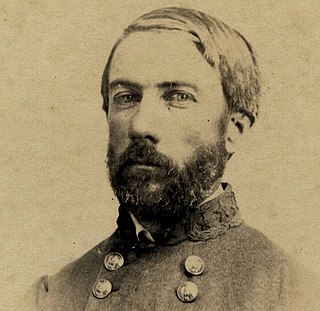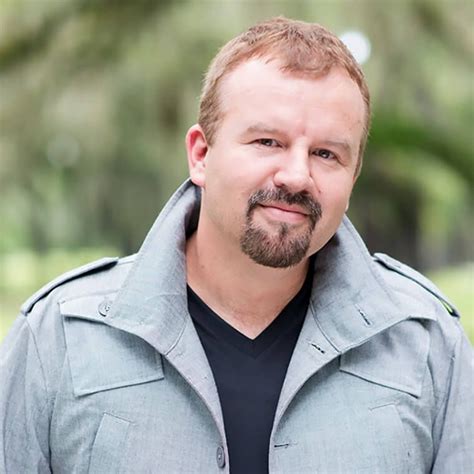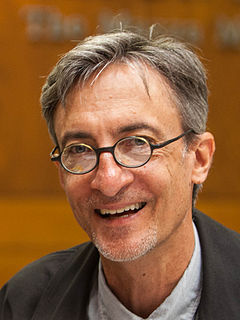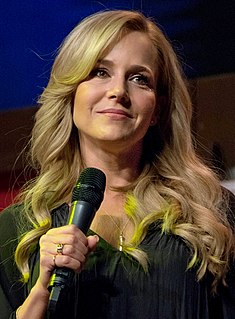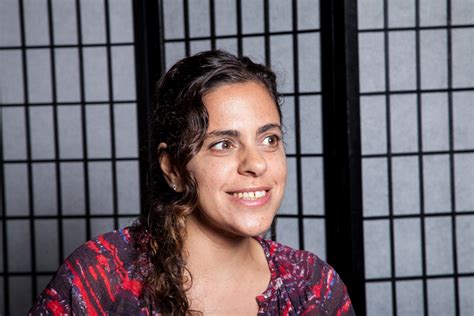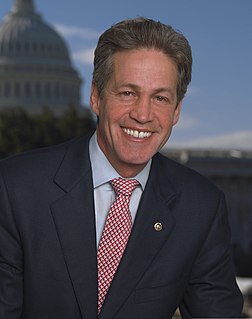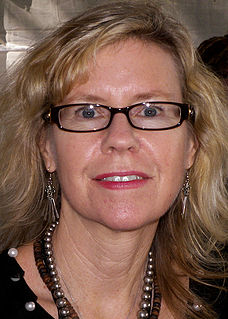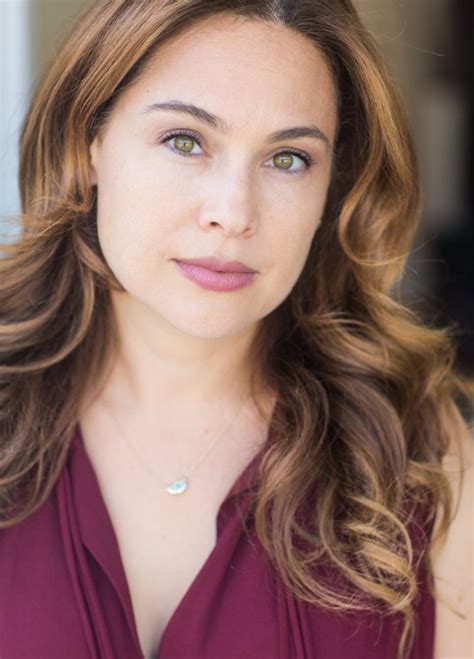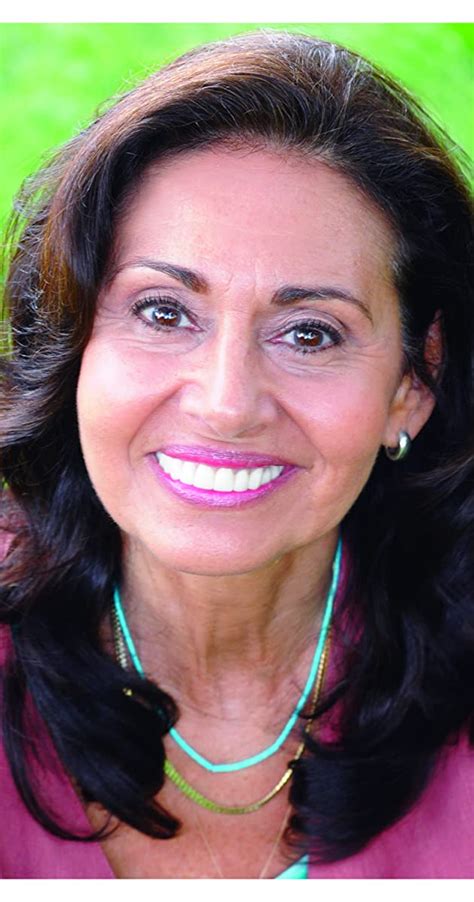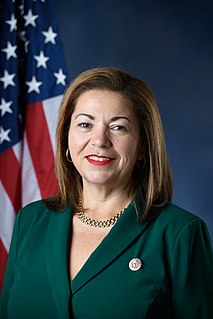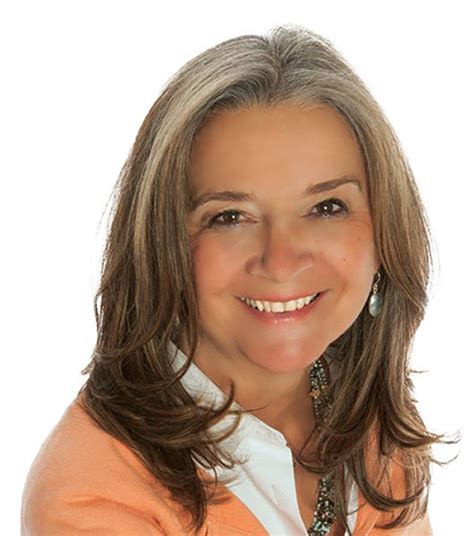Top 1200 Encourage Students Quotes & Sayings - Page 5
Explore popular Encourage Students quotes.
Last updated on April 19, 2025.
In some suburban schools, the curriculum is chock-full of rigorous A.P. courses and the parking lot glitters with pricey SUVs, but one doesn't have to look hard to find students who are starving themselves, cutting themselves, or medicating themselves, as well students who are taking out their frustrations on those who sit lower on the social food chain.
Learning should be engaging. Testing should not be the be all and end all. All students should have a broad curriculum that includes the arts and enrichment. Students should have opportunities to work in teams and engage in project-based learning. And student and family well-being should be front and center.
If I look at myself when I'm getting into the [God's] Word and just drinking Him [God] in, when I get to work, I'm looking for someone to love. I'm looking for people to encourage. I'm understanding that, hey, people are people. We're all wearing skin here. We all have our moments. I've already gotten what I need from Jesus and now I can just forgive and love and encourage.
Somewhere in this process, I begin reading and showing my book to my audience. When I say my audience, I mean a single imaginary child who is a blend of myself as a young person, the students in my wife's classroom of first- through third-graders, and the students from two classrooms I visit regularly in the Bronx, New York.
We [film supervisors] always try to encourage discussion in the room because a lot of times newer animators who are just out of school or people come from other studios, they're gonna have different points of view and we want to make sure we're vetting all the ideas to get the best ones. A lot of people are shy about speaking up if this is their first time at Pixar or if they don't have a lot of experience, so we try to encourage that.
Even fairly good students, when they have obtained the solution of the problem and written down neatly the argument, shut their books and look for something else. Doing so, they miss an important and instructive phase of the work. ... A good teacher should understand and impress on his students the view that no problem whatever is completely exhausted.
I also believe that upending ingrained ideas about what assault is a gun to the head, a stranger, a parking lot and what consent looks like a woman who gives a no really means yes is very messy. And part of the messiness is some students - and yes, usually these are liberal students - over-determining the definition of assault.
The thing I always tell my writing students - I'm not a full-time instructor, by any means, but periodically I've taught writing students - what I always tell them is that the most important thing in narrative nonfiction is that you not only have to have all the research; you have to have about 100% more than you need.
A lot of my students have been quite notable. Notable in both the personal sense - people who have changed my life - and notable in that many have gone on to enormous success in their writing careers. Whether or not I had a lot to do with those success stories, I'm very proud and happy for my former students getting on the map.
More than half of my former students teach - elementary and high school, community college and university. I taught them to be passionate about literature and writing, and to attempt to translate that passion to their own students. They are rookie teachers, most likely to be laid off and not rehired, even though they are passionate.
Ambivalence reaches the level of schizophrenia in our treatment of violence among the young. Parents do not encourage violence, but neither do they take up arms against the industries which encourage it. Parents hide their eyes from the books and comics, slasher films, videos and lyrics which form the texture of an adolescent culture. While all successful societies have inhibited instinct, ours encourages it. Or at least we profess ourselves powerless to interfere with it.
Nigeria was a blank on the map - there weren't even any maps. The US State Department, everyone said don't go there. It was courageous of Harvard University: the notion was that we would match Harvard students with Nigerian students, so that every student would have a guide, creating a guarantee of intimacy with the city.
Unlike public universities and private, not-for-profit colleges, for-profit schools are owned by revenue-seeking businesses often more intent on boosting their bottom line than educating their students. They use hard-sell tactics to recruit prospective students, and veterans have become particular targets.
What I am going to tell you about is what we teach our physics students in the third or fourth year of graduate school... It is my task to convince you not to turn away because you don't understand it. You see my physics students don't understand it... That is because I don't understand it. Nobody does.
Much like teaching art to young art students age 10 to 15 or so on, you have to break it down into bite-sized pieces, essential components. You have to - you know, at this point I'm so used to operating within given assumptions about art. But when you're explaining art to art students or people who are new to this experience, you have to really go back to the fundamentals.
I set up this magazine called Student when I was 16, and I didn't do it to make money - I did it because I wanted to edit a magazine. There wasn't a national magazine run by students, for students. I didn't like the way I was being taught at school. I didn't like what was going on in the world, and I wanted to put it right.
I strive to view my students as unique human beings all of whom come to my classroom with a personal history, cultural perceptions and traditions, goals and aspirations as well as fears and insecurities. By employing the principles of Personalization, I am able to connect with my students in a genuine way in order to build trust, respect and rapport in the classroom.
A professor was telling students about his colleagues class. Students in the other class had taken to tossing erasers at the clock. Each precise hit caused it to jump ahead one minute. Before class one morning they succeeded in advancing the clock by ten minutes. Since the new time indicated that the professor was beyond the accepted starting time, the class left. The professor never said a word about the incident. However, he presented the class with a killer of a final exam. As the students labored to finish in the allotted time, the professor amused himself by tossing erasers at the clock.
I was inspired by what students have done in some schools organizing walkouts protesting the lack of funding and that sort of thing. There are opportunities for students to engage in those types of protests - taking to the streets - but there is also writing poetry, writing music, beginning to express themselves, holding forums, educating each other, the whole range.
Standardised tests cannot capture all, but on the other hand, students who are not capable of doing well on standardised tests are not well-equipped to thrive in today's world and so it's important for teachers to ensure that students gain the foundation necessary to meet the baseline educational standards these tests represent.
The experience I had all those 40 years of working on Broadway and working on television, I bring it to students and I let them kind of drain me dry but they all feel at the end of the class that they are getting so much out of it. The students grow in my classroom because they feel safe. They don't feel like they're going to be yelled at.
If we respect students abilities to define their own experiences, to generate their own hypotheses, and to discover new ways of categorizing the world, we might not be so quick to evaluate the adequacy of their answers. We might, instead, begin listening to their questions. Out of the questions of students come some of the most creative ideas and discoveries.
Literary or scientific, liberal or specialist, all our education is predominantly verbal and therefore fails to accomplish what it is supposed to do. Instead of transforming children into fully developed adults, it turns out students of the natural sciences who are completely unaware of Nature as the primary fact of experience, it inflicts upon the world students of the humanities who know nothing of humanity, their own or anyone else's.
As a teacher with over thirty years of experience, I've found that students are hungry for material that goes beyond simply learning tune after tune. In fact, my students suggested a good portion of the material presented here. This lesson should be an indispensable aid to the aspiring bluegrass banjoist.
I was born 50 years after slavery, in 1913. I was allowed to read. My mother, who was a teacher, taught me when I was a very young child. The first school I attended was a small building that went from first to sixth grade. There was one teacher for all of the students. There could be anywhere from 50 to 60 students of all different ages.
The discipline of colleges and universities is in general contrived, not for the benefit of the students, but for the interest, or more properly speaking, for the ease of the masters. Its object is, in all cases, to maintain the authority of the master, and whether he neglects or performs his duty, to oblige the students in all cases to behave toward him as if he performed it with the greatest diligence and ability.
Without question, students need to practice, review, and drill skills, but they should do so only in the spirit of working toward more complex mastery of those skills. Redundant drill of skills is inherently boring and insulting to the learner, and it is one of the most effective methods for turning students off to learning.
I think we can't be naive in dealing with the Russians or dealing with the Syrians. But at the same time, I think we could try to encourage - and I think this is what diplomacy should do - encourage the self-interests of all parties to believe that it is in their best interest to get evil actors or rogue actors such as Syria or Iran, if you try to have less belligerent and less bellicose behavior.
The academic bias against subjectivity not only forces our students to write poorly ("It is believed...," instead of, "I believe..."), it deforms their thinking about themselves and their world. In a single stroke, we delude our students into believing that bad prose turns opinions into facts and we alienate them from their own inner lives.
Let's be clear about what Common Core is. It spells out what students should know at the end of each grade. The goal is to ensure that our students are sound in math and literacy and that our schools have some basic consistency nationwide. But the standards do not dictate a national curriculum, and teachers are not told how or what to teach.
We live in a society which is heading in one direction, so it's good to have at least a few friends who share the same values and can encourage us and help us to remember that we're not alone or peculiar, but that what we're doing is a very valid way of life. This will encourage us to put the Dharma at the centre of our life and not the periphery, to use our daily life as our Dharma practice.


